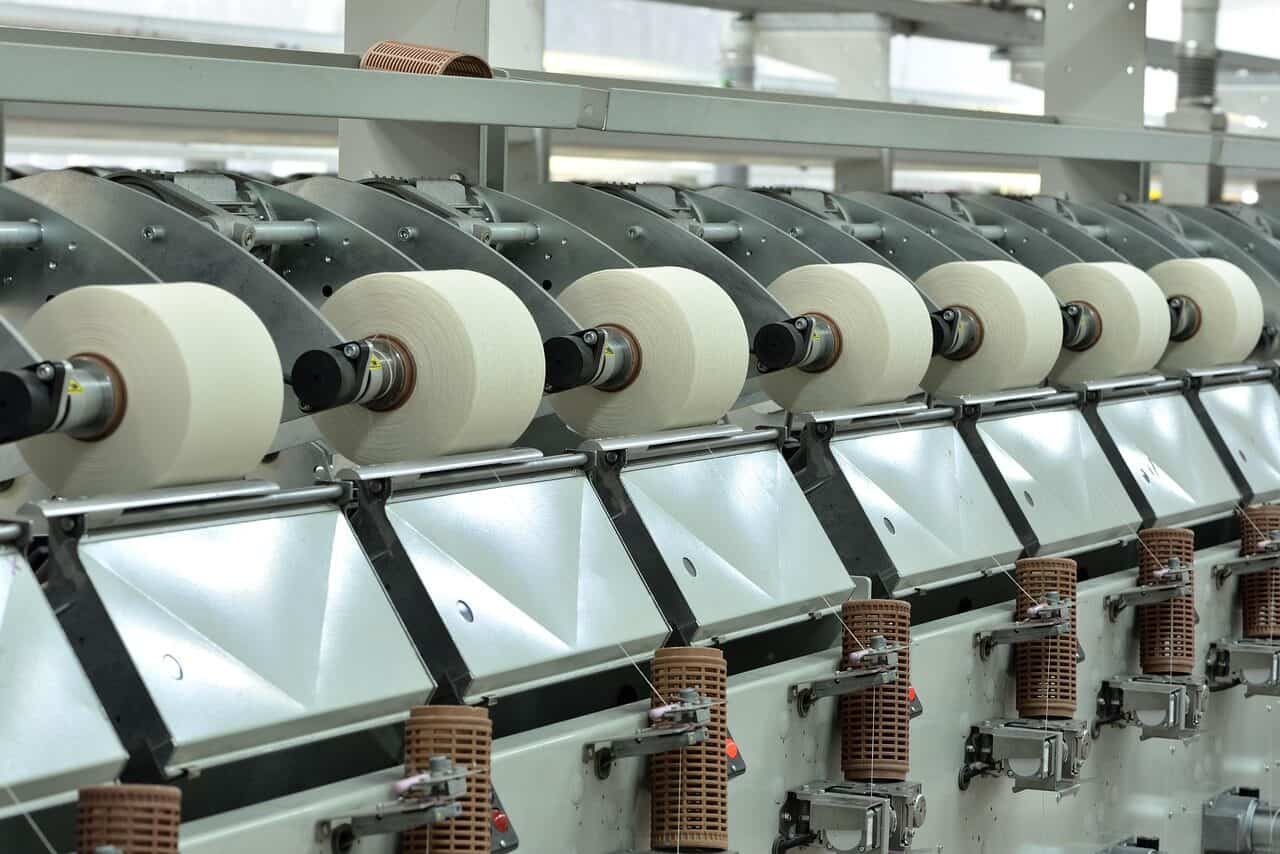Você já se perguntou como as suas balas de goma favoritas são feitas com tanta precisão e consistência? Por trás de cada guloseima colorida e mastigável está a experiência de fabricantes inovadores de balas de goma, que unem criatividade e tecnologia.
O mercado global de balas de goma está em expansão, com os consumidores desejando mais do que nunca essas guloseimas mastigáveis e saborosas. Não importa se você é uma empresa de confeitaria iniciante ou um fabricante estabelecido que deseja expandir suas capacidades de produção, a escolha do Fabricante de máquinas de balas de goma pode ser decisivo para seu sucesso.
Encontrar o parceiro perfeito para suas necessidades de produção de gomas envolve mais do que apenas comparar preços. Você precisará considerar fatores como capacidade de produção, opções de personalização, suporte técnico e confiabilidade a longo prazo. O fabricante certo não apenas fornecerá equipamentos de alta qualidade, mas também oferecerá a experiência e o suporte necessários para ajudar sua empresa a prosperar no competitivo mercado de doces.
Este guia abrangente o guiará por tudo o que você precisa saber sobre como selecionar uma goma de mascar máquina de doces fabricante, desde a compreensão dos diferentes tipos de máquinas até a avaliação dos principais recursos e a tomada da decisão final.
Entendendo o equipamento de produção de balas de goma
A produção moderna de balas de goma depende de um maquinário sofisticado que pode lidar com tudo, desde a mistura de ingredientes até a moldagem e a embalagem do produto final. Essas máquinas evoluíram significativamente de operações manuais simples para operações totalmente automatizadas linhas de produção capaz de produzir milhares de gomas por hora.
Os principais componentes da produção de balas de goma incluem sistemas de cozimento que aquecem e misturam os ingredientes, sistemas de depósito que despejam a mistura em moldes, túneis de resfriamento que fixam a bala e equipamentos de desmoldagem que removem os produtos acabados. Os sistemas avançados também incorporam mecanismos de controle de qualidade, recursos de embalagem automática e sistemas de monitoramento computadorizado.
A capacidade de produção varia drasticamente entre os diferentes tipos de máquinas. As unidades de mesa de pequena escala podem produzir de 50 a 200 peças por hora, enquanto as linhas de produção de nível industrial podem fabricação de 3.000 a 10.000 gomas por hora ou mais. Compreender suas necessidades de produção atuais e projetadas é fundamental para a seleção do equipamento adequado.
Tipos de máquinas de balas de goma
Máquinas de laboratório e de pequena escala
Essas unidades compactas são perfeitas para o desenvolvimento de produtos, produção de pequenos lotes ou operações de inicialização. Normalmente, elas apresentam operação manual ou semiautomática e podem produzir vários formatos e tamanhos de gomas. A maioria das máquinas de laboratório se concentra na flexibilidade e não na velocidade, permitindo que os fabricantes façam experimentos com receitas e testem novos produtos.
As máquinas de pequena escala geralmente incluem recursos como controle de temperatura, recursos de mistura e moldes intercambiáveis. Elas são ideais para empresas que produzem gomas especiais ou artesanais, onde a qualidade e a exclusividade são mais importantes do que o volume.
Linhas de produção semiautomáticas
Os sistemas semiautomáticos preenchem a lacuna entre a produção em pequena escala e a totalmente automatizada. Essas máquinas exigem alguma intervenção manual, mas podem aumentar significativamente a capacidade de produção, mantendo custos de investimento razoáveis.
Esses sistemas normalmente incluem funções automatizadas de cozimento e depósito, mas exigem manuseio manual do molde e desmoldagem. São excelentes para operações de médio porte que precisam de qualidade de produção consistente, mas não estão prontas para investir em automação total.
Linhas de produção totalmente automatizadas
As linhas automatizadas de alta capacidade representam o auge da tecnologia de produção de gomas. Esses sistemas abrangentes lidam com todos os aspectos da produção, desde a mistura de ingredientes até a embalagem final, com o mínimo de intervenção humana necessária.
As linhas automatizadas incluem recursos como sistemas de cozimento contínuo, mecanismos de depósito de precisão, ambientes de resfriamento controlado, desmoldagem automática e soluções integradas de embalagem. Elas são projetadas para produção comercial em larga escala, onde a consistência, a eficiência e a alta produção são fundamentais.
Principais recursos a serem considerados
Capacidade e velocidade de produção
A capacidade de produção de sua máquina deve estar alinhada com suas metas comerciais e com a demanda do mercado. Considere as necessidades atuais e as projeções de crescimento futuro ao avaliar os requisitos de capacidade. Lembre-se de que as máquinas de maior capacidade normalmente exigem investimentos iniciais maiores, mas podem oferecer melhor eficiência de custo a longo prazo.
A velocidade não é o único fator - a consistência e a qualidade nunca devem ser comprometidas por taxas de produção mais altas. Procure máquinas que mantenham uma qualidade de saída consistente mesmo em velocidades máximas de produção.
Opções de flexibilidade e personalização
Os mercados modernos exigem variedade, portanto seu equipamento deve acomodar diferentes tamanhos, formas, cores e formulações de gomas. Procure máquinas que ofereçam moldes intercambiáveis, sistemas de depósito ajustáveis e programação flexível de receitas.
Alguns fabricantes oferecem sistemas modulares que podem ser expandidos ou reconfigurados conforme suas necessidades mudam. Essa flexibilidade pode ser valiosa para empresas que planejam diversificar suas linhas de produtos ao longo do tempo.
Controle e monitoramento de qualidade
Os recursos avançados de controle de qualidade ajudam a garantir a qualidade consistente do produto e a reduzir o desperdício. Procure máquinas com monitoramento de temperatura, sistemas de controle de peso, recursos de inspeção visual e sistemas automatizados de rejeição de produtos defeituosos.
Os recursos de monitoramento em tempo real e registro de dados permitem rastrear as métricas de produção, identificar tendências e otimizar as operações para obter o máximo de eficiência e qualidade.
Avaliação dos fabricantes de balas de goma
Reputação e experiência da empresa
Pesquise minuciosamente os possíveis fabricantes, examinando seu histórico, depoimentos de clientes e reputação no setor. Empresas com ampla experiência em produção de doces é mais provável que os equipamentos compreendam os desafios e requisitos exclusivos da fabricação de gomas.
Procure fabricantes especializados em equipamentos de confeitaria em vez de máquinas de processamento de alimentos em geral. As empresas especializadas geralmente oferecem melhor conhecimento técnico e inovações de produtos mais relevantes.
Suporte técnico e serviço
O suporte técnico confiável é fundamental para manter a eficiência da produção e minimizar o tempo de inatividade. Avalie os fabricantes com base em suas ofertas de suporte, incluindo serviços de instalação, programas de treinamento, suporte de manutenção e disponibilidade de peças sobressalentes.
Considere a presença geográfica e a rede de serviços do fabricante. O suporte local ou regional pode ser inestimável quando você precisar de assistência rápida ou reparos de emergência.
Recursos de personalização
Cada operação de produção de gomas tem requisitos exclusivos, portanto, os fabricantes que oferecem serviços de personalização proporcionam vantagens significativas. Isso pode incluir projetos de moldes personalizados, sistemas de aquecimento especializados, integração de embalagens exclusivas ou sistemas de controle modificados.
Discuta suas necessidades específicas com os possíveis fabricantes para entender a capacidade deles de adaptar o equipamento padrão às suas exigências.
Considerações sobre custos e orçamento
Investimento inicial vs. valor de longo prazo
Embora o preço de compra inicial seja importante, considere o custo total de propriedade, incluindo instalação, treinamento, manutenção e custos operacionais. Às vezes, investimentos iniciais mais altos resultam em custos mais baixos a longo prazo por meio de maior eficiência, confiabilidade e menores requisitos de manutenção.
Leve em conta a receita potencial de produção ao avaliar os custos. Uma máquina que custa o dobro do preço, mas produz três vezes mais, pode oferecer um melhor retorno sobre o investimento.
Opções de financiamento
Muitos fabricantes oferecem opções de financiamento que podem ajudar a distribuir os custos do equipamento ao longo do tempo. Essas opções podem incluir empréstimos para equipamentos, programas de leasing ou acordos de aluguel para compra. Compare as diferentes opções de financiamento para encontrar a melhor opção para seu fluxo de caixa e metas comerciais.
Alguns fabricantes também oferecem opções de equipamentos usados ou recondicionados que podem proporcionar uma economia significativa de custos e, ao mesmo tempo, proporcionar um desempenho confiável.
Requisitos de instalação e treinamento
A instalação adequada e o treinamento do operador são essenciais para o sucesso das operações de produção de gomas. Trabalhe com fabricantes que ofereçam serviços de instalação abrangentes e programas de treinamento completos para a sua equipe.
Os requisitos de instalação variam significativamente entre os diferentes tipos de máquinas. Pequenas unidades de mesa podem exigir apenas conexões elétricas básicas, enquanto grandes linhas automatizadas podem precisar de modificações extensas nas instalações, utilitários especializados e trabalho de integração complexo.
Os programas de treinamento devem abranger a operação da máquina, os procedimentos de manutenção, as técnicas de solução de problemas e os protocolos de segurança. Operadores bem treinados são essenciais para manter a qualidade consistente da produção e evitar danos dispendiosos ao equipamento.
Tomando sua decisão final
Comece definindo claramente seus requisitos de produção, restrições orçamentárias e cronograma. Crie uma matriz de comparação detalhada que inclua todos os fatores relevantes, como capacidade, recursos, custo, suporte e reputação do fabricante.
Solicite propostas detalhadas de vários fabricantes e, se possível, visite suas instalações ou instalações de clientes existentes para ver o equipamento em operação. Essa avaliação prática pode fornecer percepções valiosas que não são aparentes apenas nas especificações.
Não apresse o processo de tomada de decisão. Reserve um tempo para avaliar minuciosamente todas as opções e considere como cada escolha se alinha à sua estratégia de negócios de longo prazo. A escolha certa Fabricante de máquinas de balas de goma se tornará um valioso parceiro de longo prazo para o sucesso de seus negócios.
Lembre-se de que o preço mais baixo nem sempre é o melhor valor. Concentre-se em encontrar a combinação de fabricante e equipamento que ofereça o melhor equilíbrio de capacidade, confiabilidade, suporte e custo para suas necessidades específicas.
Construindo seu doce sucesso
Selecionando o direito máquina de balas de goma A escolha de um fabricante é uma decisão crítica que afetará suas capacidades de produção, a qualidade do produto e a lucratividade da empresa nos próximos anos. Reserve um tempo para pesquisar minuciosamente suas opções, definir claramente seus requisitos e escolher um fabricante que possa crescer com sua empresa.
O mercado de balas de goma continua a se expandir, oferecendo excelentes oportunidades para empresas com as capacidades de produção adequadas. Ao fazer parceria com um fabricante de boa reputação e investir em equipamentos adequados, você estará bem posicionado para capturar sua parte nessa doce oportunidade de mercado.
Inicie seu processo de avaliação de fabricantes hoje mesmo, solicitando informações de vários fornecedores e iniciando conversas sobre suas necessidades específicas. Quanto mais cedo você iniciar esse processo, mais cedo poderá começar a produzir as gomas de alta qualidade que seus clientes desejam.
Aplicativos do setor
O mercado de gomas vai além do setor de confeitaria tradicional. As gomas encontraram aplicações abrangentes em vários setores, incluindo saúde e bem-estar, produtos farmacêuticos e até mesmo cuidados com animais de estimação. Por exemplo, o setor de saúde e bem-estar adotou as gomas como um veículo para fornecer suplementos como vitaminas, minerais e extratos de ervas. Seu formato mastigável e seus sabores atraentes fazem delas a opção preferida de consumidores de todas as idades que buscam uma maneira agradável de manter seu regime nutricional.
As empresas farmacêuticas também utilizam gomas para administrar medicamentos, principalmente para crianças e indivíduos que têm dificuldade de engolir comprimidos. Essas gomas medicinais proporcionam uma experiência mais agradável e melhoram a adesão aos planos de tratamento. Além disso, no setor de cuidados com animais de estimação, as gomas são cada vez mais usadas para produzir suplementos mastigáveis para animais de estimação, oferecendo uma maneira fácil e atraente para que os donos apoiem a saúde de seus animais. A versatilidade das gomas garante sua relevância e crescimento contínuos em diversos setores.
Tendências futuras
O futuro das gomas é marcado pela inovação e expansão, à medida que os setores exploram continuamente novas possibilidades para seu uso. Uma tendência emergente é a integração de ingredientes funcionais como probióticos, adaptógenos e CBD, atendendo aos consumidores que buscam soluções holísticas de bem-estar. A sustentabilidade também está ganhando força, com as empresas priorizando embalagens ecologicamente corretas e formulações de gomas à base de plantas para se alinharem às preferências ambientais e dietéticas. Além disso, os avanços na tecnologia de impressão 3D podem revolucionar o mercado de gomas de mascar. Processo de fabricação de gomaspermitindo maior personalização e precisão na administração da dosagem. Essas tendências destacam a capacidade de adaptação e o potencial do setor de gomas para moldar as experiências dos consumidores de maneiras novas e empolgantes.
Em conclusão, o setor de gomas está na vanguarda da inovação, combinando ciência, sustentabilidade e abordagens centradas no consumidor para redefinir suas ofertas. Com foco na personalização, otimização da saúde e práticas ecologicamente conscientes, ele continua a prosperar em um mercado em evolução. Esse setor dinâmico não apenas atende às demandas dos consumidores modernos, mas também prepara o terreno para um futuro em que as gomas são mais do que uma guloseima - elas são uma solução sofisticada para uma gama diversificada de necessidades. As possibilidades são realmente ilimitadas.
Perguntas frequentes
1. Quais são os principais ingredientes das balas de goma?
As gomas são normalmente feitas com gelatinaA gelatina é um ingrediente essencial da goma, pectina ou outros agentes gelificantes, juntamente com adoçantes, aromatizantes e corantes. Para gomas à base de plantas, os fabricantes geralmente usam pectina proveniente de frutas em vez de gelatina.
2. Há opções de gomas veganas ou vegetarianas disponíveis?
Sim, muitas empresas agora oferecem opções de gomas veganas e vegetarianas. Esses produtos usam alternativas à gelatina, como a pectina ou o ágar-ágar, para obter a textura de goma desejada.
3. Como as gomas são personalizadas para necessidades específicas?
As gomas podem ser personalizadas com a incorporação de ingredientes ativos específicos, como vitaminas, minerais, botânicos ou outros suplementos. Os avanços na fabricação também permitem a dosagem precisa para atender a preferências dietéticas ou de saúde específicas.
4. Os suplementos em forma de goma são tão eficazes quanto as pílulas tradicionais?
Quando formulados corretamente, os suplementos em goma podem ser tão eficazes quanto os comprimidos tradicionais, pois contêm os mesmos ingredientes ativos. Entretanto, os consumidores devem sempre verificar a dosagem e o teor de açúcar ao escolher gomas em vez de pílulas.
5. O que torna as gomas ecológicas diferentes?
As gomas ecológicas são projetadas com a sustentabilidade em mente. Elas geralmente apresentam fórmulas à base de plantas, ingredientes naturais e embalagens ecologicamente conscientes para reduzir seu impacto ambiental.
- https://www.fda.gov/ FDA - Padrões de fabricação de alimentos e suplementos dietéticos
- https://en.wikipedia.org/wiki/Confectionery Wikipedia - Confeitaria
- https://www.iso.org/ ISO - Sistemas de gerenciamento de segurança de alimentos
- https://www.ift.org/ Instituto de Tecnólogos em Alimentos (IFT)
- https://www.sciencedirect.com/ ScienceDirect - Pesquisa sobre processamento de alimentos
- https://www.pmmi.org/ PMMI - Instituto de Fabricantes de Máquinas de Embalagem
- https://www.madehow.com/ Made How - Processos de fabricação
- https://pmc.ncbi.nlm.nih.gov/ PubMed Central - Pesquisa sobre a fabricação de suplementos alimentares
- https://www.chpa.org/ Associação de Produtos de Saúde do Consumidor (CHPA)
- https://www.researchgate.net/ ResearchGate - Trabalhos de pesquisa sobre fabricação de gomas









